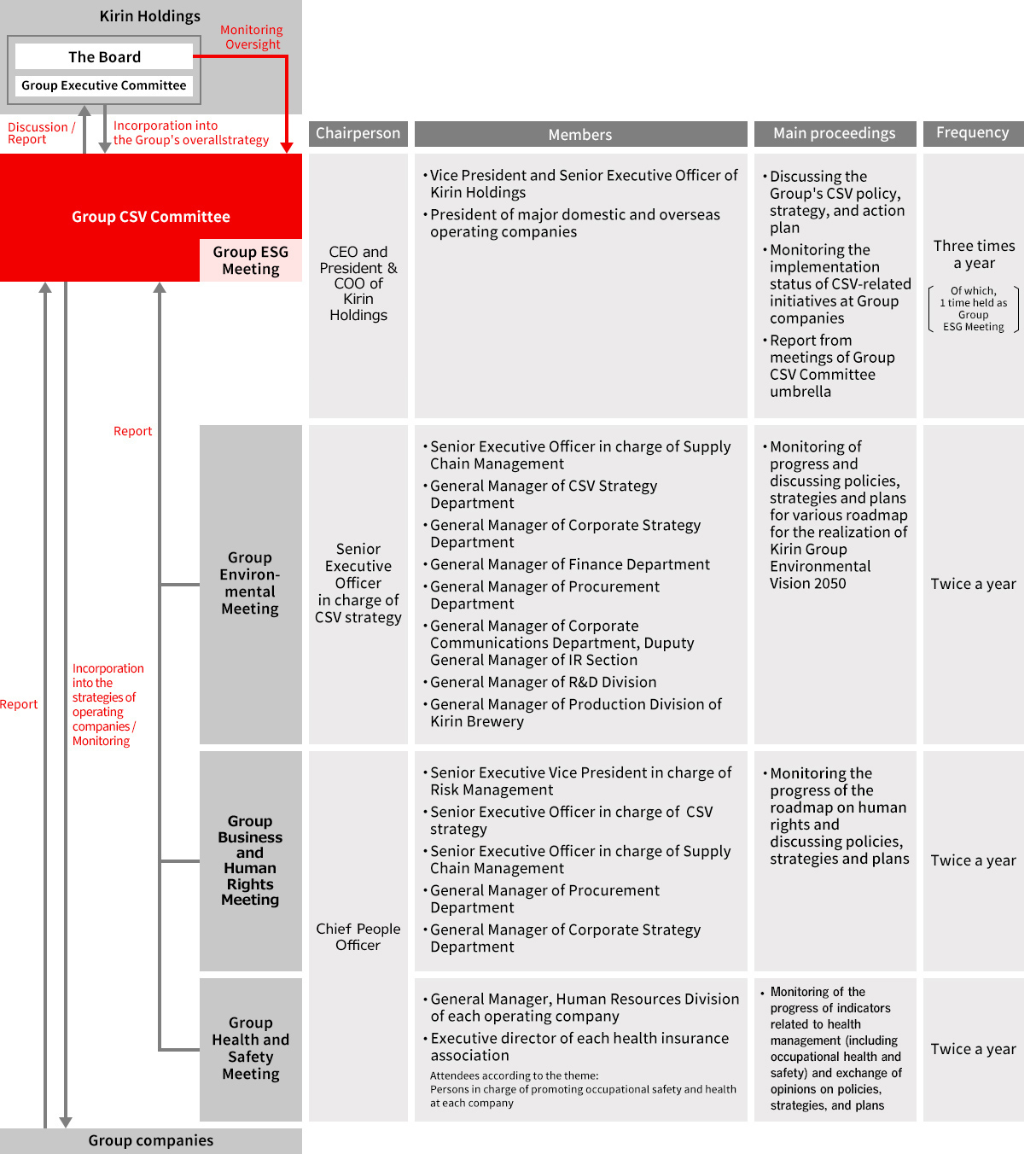The Role of Business Groups in Promoting Health Initiatives. Discover how business groups can boost health initiatives by fostering collaboration & promoting wellness in The workplace. Join The health revolution today!
What is The Role of Business Groups in Promoting Health Initiatives & how does it work?
Business groups promote health initiatives through collaboration. They create alliances with stakeholders. Resources enhance public health strategies effectively. These groups engage employees actively. Support comes from various sectors. Including health organizations. Networking fosters partnerships within local communities. Thus. Businesses contribute positively.
Brief history of The Role of Business Groups in Promoting Health Initiatives
Business groups have evolved significantly over decades. In early days. Companies focused solely on profit. However. Societal pressures drove changes. Gradually. Firms began prioritizing employee health. Advocacy for healthier workplaces emerged as vital. Collaboration with nonprofits helped establish programs. This evolution shows a growing commitment.
How To implement The Role of Business Groups in Promoting Health Initiatives effectively
Effective implementation requires clear strategies. Companies must assess current health needs first. Actively engaging employees ensures participation. Setting measurable goals helps track progress. For best outcomes. Utilize feedback from participants. Collaborating with health experts enhances program design. Regular evaluations drive continuous improvement.
Key benefits of using The Role of Business Groups in Promoting Health Initiatives
Numerous benefits arise from these initiatives. Improved employee morale leads To increased performance. Healthy employees reduce healthcare costs significantly. Businesses gain a positive public image. Enhanced employee loyalty strengthens retention rates. Community trust often grows alongside these efforts. Ultimately. Everyone benefits from healthier environments.
Challenges with The Role of Business Groups in Promoting Health Initiatives & potential solutions
Challenges exist alongside potential benefits. Limited funding can hinder program development. Resistance from employees may pose issues too. Navigating diverse stakeholder interests complicates initiatives. However. Effective communication can bridge these gaps. Finding alternative funding sources assists projects. Education about benefits could alleviate resistance as well.
Future of The Role of Business Groups in Promoting Health Initiatives
Future trends suggest increased focus on mental health. Technology integration will enhance program delivery. Data analytics can help refine health strategies. Sustainability will become essential for long-term success. As societal values shift. Companies must adapt. Alternate models will likely emerge alongside ongoing research. Continuous innovation drives this evolving landscape.
Table of The Role of Business Groups in Promoting Health Initiatives
| Aspect | Description |
|---|---|
| Collaboration | Bringing together various stakeholders. |
| Funding | Securing resources for initiatives. |
| Employee Engagement | Involving workers in health activities. |
| Program Evaluation | Regular assessments for improvements. |
| Community Impact | Positive effects on local populations. |

The Influence of Business Groups on Health Initiatives
Business groups play a significant role in promoting health initiatives. Their influence extends beyond traditional marketing. By emphasizing wellness. These organizations create a supportive environment for employees. They foster a culture that values health & wellness. Strong workplace policies improve overall community health. Too. Resources allocated for health programs yield substantial returns. Enhanced productivity can be observed among healthier employees. When businesses invest in wellbeing. Society at large benefits.
Factors like social determinants are crucial in shaping health. Addressing these gaping gaps requires multifaceted approaches. Business groups contribute effectively here. They understand various influences impacting workforce health. Programs targeting nutrition. Exercise, & mental wellbeing emerge. Strategies become effective when community & business efforts align. For further insights on this dynamic. View this important resource. Such collaboration ensures a holistic approach To health challenges.
Strategies for Employee Wellness
Organizations should implement comprehensive wellness programs. Effective strategies involve things like health screenings & fitness classes. Employee assistance programs offer mental health support. When companies prioritize health. They engage employees better. This engagement leads To lower absenteeism rates. Employees become more present & focused at work. Companies enjoy higher morale also. Contributing To an improved work atmosphere.
Wellness challenges serve as an excellent motivator. Friendly competitions can encourage physical activity. Group workouts build camaraderie among team members. Organizations can partner with local gyms for discounts. Providing tools & resources enhances overall employee health. Enriching workplace culture. Employees feel valued & supported in their health journeys. This positive environment fosters loyalty & reduces turnover.
Financial Benefits of Healthy Employees
Investing in wellness initiatives yields significant financial returns. Healthy employees tend To have lower healthcare costs. Illness directly hampers productivity & impersonates wasteful spending. A proactive approach mitigates these expenses. Workplaces save substantial amounts when employees remain healthy. Enhanced health directly correlates with improved business outcomes.
For instance. Healthier employees reduce medical claims. This reduction lowers premiums for companies. Benefits extend beyond health insurance savings too. Enhanced job performance often leads To increased profits. Organizations that prioritize health see dramatic gains in performance. This creates a positive feedback loop where investment leads To further business growth.
Community Engagement Through Health Initiatives
Business groups can engage with local communities effectively. Corporate social responsibility (CSR) programs enhance public health. Collaborating with local health organizations creates impactful community initiatives. Companies can offer resources. Funding, & expertise. This partnership improves health outcomes on a larger scale. In turn. Communities thrive & businesses strengthen relationships.
Local sponsorship of health events can garner significant visibility. Companies can participate in charity walks or runs. This visibility not only promotes community health but also bolsters brand reputation. Engaging employees in volunteer activities fosters a sense of pride. Such experiences encourage a communityoriented mindset within workplaces.
Creating HealthConscious Work Environments
Physical workspace layout influences health choices. Business groups can design environments promoting healthy behaviors. Features like standing desks or walking paths encourage movement. Collaborative spaces foster social interaction. Reducing stress. Nontoxic materials improve indoor air quality. Benefiting overall wellbeing. Thoughtfully designed workplaces result in happier employees.
Implementing nutritional policies enhances workplace wellness. Offering healthy snacks transforms break room culture. Employees become more mindful of dietary choices. Employers can partner with nutritionists for workshops. Education empowers individuals To make better health choices. This longterm strategy secures better health outcomes.
Technology’s Role in Health Initiatives
Innovations in technology advance workplace health significantly. Companies can utilize wellness apps for tracking fitness goals. These apps encourage friendly competition among employees. Data analytics offer insights into overall employee health trends. Such information informs management decisions concerning health initiatives. Regular review of these metrics strengthens programs.
Telehealth services provide employees access To medical care. Employees can consult professionals without leaving work. Virtual mental health resources enhance employee support. Technology shapes how businesses approach employee wellbeing. As companies evolve. Technologies supporting health will become essential.
Health Education & Awareness Programs
Education amplifies awareness of health issues among employees. Workshops addressing topics like smoking cessation yield significant benefits. Engaging speakers can drive participation in health seminars. Tailored educational resources help individuals understand their health better. When organizations prioritize education. They foster a culture of wellness.
Employee feedback can shape educational programs effectively. Surveys allow companies To identify areas of concern. Addressing these concerns through education resonates more deeply with employees. Regular health newsletters keep information fresh & accessible. This continuous education promotes sustained engagement with health initiatives.
Addressing Mental Health in The Workplace
Mental health plays a critical role in overall wellbeing. Business groups must prioritize psychological support for employees. Organizations can offer mental health days without stigma. Employee assistance programs provide vital resources for stress management. This approach enhances workplace morale & reduces burnout.
Training for management on mental health issues builds understanding. Leaders become equipped To support their teams more effectively. Creating an open dialogue encourages employees To seek help. Share success stories of individuals overcoming mental health struggles. Vulnerability fosters connection. Creating supportive work environments.
Leveraging Policy Change for Health Promotion
Advocacy for health policy change can magnify business impact. Organizations are wellpositioned To influence local legislation. Lobbying for better health practices benefits communities immensely. Collaborating with healthfocused organizations evolves policy discussions. Business leaders’ voices can lead significant changes To local health standards.
Supporting public health initiatives generates community goodwill. Partnerships with health departments can streamline efforts. Organizations contribute funding & resources while gaining community trust. Policies supporting health equity promote inclusivity & access for all. Cleardriven focus on this important area enhances public health infrastructure.
Measuring Success of Health Programs
Evaluating wellness initiatives ensures program effectiveness. Effective metrics can capture employee engagement & satisfaction. Surveys assessing health improvements gauge overall success. Collecting data regularly informs necessary policy adjustments. Metrics help illustrate The program’s direct impact on workplace health.
Organizations can share success stories celebrating health improvements. Highlighting individual transformations inspires others To participate. Acknowledging participation contributes To a culture of accountability. Regular sharing of wins offsets employee skepticism toward programs.
Building Partnerships Within The Community
Fostering collaborations with local organizations amplify efforts. Businesses leverage resources. Expertise, & connections. This engagement can lead To meaningful workplace programs. Local universities can contribute research on best practices. These partnerships enhance program development & establish trust.
Participating in local health fairs increases visibility. Organizations showcase commitment while providing valuable resources. Local partnerships can extend reach. Benefiting The broader community. Collaborating elevates both The business’s & community’s health outcomes.
Encouraging Employee Input in Health Programs
Engaging employees in design processes fosters better programs. Interest & satisfaction increase when staff participate in development. Seeking feedback encourages a sense of ownership over health initiatives. This empowerment leads employees To champion programs within their networks.
Surveying employees regularly helps organizations understand needs. Responses can guide future investments in health initiatives. Creating diverse committees allows representation of all employee voices. Broad perspectives enhance health programs. Making them more effective.
LongTerm Vision for Health Initiatives
Business groups should approach health initiatives with a longterm vision. Sustainability becomes crucial as workplaces evolve over time. Continuous investment in health ensures employees remain engaged. Regular reassessment of health goals reflects organizational commitment.
Setting measurable goals will track progress effectively. Evaluate successes & recognize areas needing adjustment. Ultimately. A longterm approach fosters a culture that values wellbeing. Maintaining focus on health creates a healthier workforce for years.
In my personal experience. I observed profound transformations in organizational culture. When our company introduced a comprehensive wellness program. Employees began prioritizing their health. Wellness challenges encouraged participation. Fostering collaborative relationships among colleagues. It became evident that when businesses invest in wellbeing. They nurture a wholehearted workforce.
- 🏥 Employee wellness programs
- 📈 Comprehensive health initiatives
- 🤝 Community partnerships
- 🧘♂️ Mental health support
- 📊 Success measurement metrics
- 🍏 Nutritional policies
- 💻 Technology integration

The Role of Business Groups in Promoting Health Initiatives
Understanding Business Groups & Their Influence
Business groups consist of organizations striving for common goals. These groups often work across sectors. Their collective power can drive significant change. For instance. Collaboration can create effective health programs. They serve as vital players within communities. Through alliances. Businesses amplify their impact. Strategies often emphasize social responsibility. This focus fosters a healthier society. Community wellbeing becomes a priority. Various initiatives emerge. Addressing local health challenges. Examples include vaccination drives & wellness programs.
Research consistently shows business engagement proves beneficial. When companies promote health. Productivity often increases. Employees report higher job satisfaction. Healthier staff tend To contribute positively. This dynamic fuels economic growth. Communities benefit from a workforce focused on health. Business leaders recognize this opportunity. Their involvement goes beyond profit maximization. Engaging in social causes creates lasting legacies.
Business groups can drive innovation. By joining forces. They can invest in unique solutions. Partnerships with healthcare organizations enhance expertise. Together. They identify gaps in health services. This approach fosters comprehensive strategies. Innovation then emerges as a crucial element. Effective programs address mental health needs too. Considerations also include emotional wellbeing & health equity.
Importance of Health Initiatives
Health initiatives play a pivotal role in community development. These programs not only improve physical health but also mental wellbeing. Businesses that prioritize health contribute positively. They create environments conducive To growth. Community engagement becomes essential for progress. Each initiative fosters partnerships that enhance health literacy. More informed individuals make healthier choices.
Business leaders can leverage global health trends. Corporations often engage with frameworks like Healthy People 2030. This framework outlines essential health objectives. Its goals guide organizations in developing relevant interventions. Meaningful engagement with community health aligns corporate values. Support for local health initiatives reflects commitment.
In addition. Research enhances understanding of health initiatives. Studies show various successful models. For instance. Publicprivate partnerships demonstrate efficacy. Such collaborations create sustainable programs. Businesses leveraging health research promote informed decisionmaking. Allies in health may include universities & NGOs. By aligning efforts. They address barriers. This cooperation leads To greater impact. A collective approach allows for innovative solutions. Another resource includes research studies that provide insightful data.
Strategies for Effective Engagement
Implementing health initiatives requires strategic planning. Identification of community needs remains crucial. Understanding local demographics shapes program development. Conversations with community members offer invaluable insights. These interactions inform decisionmaking processes. Employing data analysis enhances accuracy. Businesses can tailor initiatives based on reliable information. Continual assessment maintains effectiveness over time.
Collaboration represents an integral part of success. Engaging with local healthcare systems fosters alignment. Partnerships amplify resources available for health initiatives. Each participant brings unique strengths. These alliances cultivate a shared vision for health. Experience from other sectors provides valuable lessons. Effective strategies often translate across industries. Additionally. Accountability remains vital. Transparency builds trust within communities. Stakeholders must communicate progress regularly.
Innovative marketing strategies can further support initiatives. Businesses often share success stories. Highlighting positive outcomes resonates with audiences. Social media provides a powerful platform. Engaging narratives inspire community involvement. Storytelling can illustrate The impactful role of health initiatives. Businesses become known for their commitment as a result. Resources allocated toward marketing also enhance visibility.
Challenges Faced by Business Groups
While many benefits exist. Challenges also abound. One significant challenge involves funding constraints. Many health projects rely heavily on financial resources. Budget limitations may restrict potential initiatives. Businesses might hesitate To invest in uncertain outcomes. This situation necessitates creative financing solutions. Additional revenue streams can support health programs.
In addition. Navigating regulatory landscapes poses hurdles. Business groups must adhere To numerous guidelines. Compliance can often consume resources. Developing partnerships helps mitigate this issue. Collaboration may streamline processes & ensure adherence. Regulatory frameworks vary. Adding another layer of complexity. Staying informed about changes proves essential.
Measuring program impact also presents challenges. Evaluating health initiatives is multifaceted. It requires reliable metrics for assessment. Quantifying success can lead To better funding opportunities. Definitions of success vary across stakeholders. Harmonizing these perspectives remains challenging. Stakeholders must agree on indicators early. Only then can effective evaluation occur.
Comparative Analysis of Business Group Roles
| Aspect | Business Group Role | Community Impact |
|---|---|---|
| Funding 💰 | Sustains health initiatives | Enhances overall community health |
| Collaboration 🤝 | Builds crosssector partnerships | Increases resource availability |
| Innovation 💡 | Drives new health solutions | Addresses pressing health issues |
| Awareness 📣 | Promotes health literacy | Empowers individuals for better choices |
| Evaluation 📊 | Measures program effectiveness | Informs future initiatives |
Case Studies of Successful Initiatives
Several successful case studies highlight effective models. One notable example involves a multinational corporation. This entity partnered with local health groups. Together. They launched a health screening initiative. Employees gained access To essential services. Screening programs led To early detection of health issues. Subsequent followup improved health outcomes for many.
Another case study originates from within The tech sector. A prominent tech company implemented wellness programs. These programs included mental health resources. Employee feedback significantly shaped initiative direction. The organization recognized a tangible improvement in workplace morale. Increased productivity resulted. Benefiting both employees & The company.
Communityfocused initiatives leverage local partnerships. A nonprofit collaborated with local businesses. They created a healthy eating campaign. Educational workshops & cooking classes were implemented. Participants learned healthy eating habits. This initiative improved dietary practices within The community.
My Personal Experience
Throughout my career. I witnessed The power of collaboration. I worked with business groups on local health projects. Their commitment truly inspired communities. Together. We made meaningful changes in individuals’ lives. Every partnership brought new insights & learning. Engaging with diverse perspectives led To innovative solutions. My involvement reinforced my belief in communitydriven efforts.
Looking Ahead: Future Directions
Future directions for business groups promise exciting developments. Increased collaboration across sectors will likely continue. Health technology advancements play a pivotal role. Companies may adopt innovative tools for better engagement. Digital platforms facilitate broader outreach. Virtual health initiatives can reach underserved populations. This trend may reshape health service delivery.
Policies supporting health initiatives can enhance effectiveness. Governments might encourage business involvement. Incentives could motivate companies To participate actively. Engagement involves not only resources but also advocacy. Influencing local health policies can create lasting change. Business groups. Therefore. Play a crucial role within this landscape.
Finally. Sustainable practices gain importance. Companies increasingly focus on social responsibility. A mutually beneficial relationship with community health may develop. This focus on sustainability ensures longterm impact. Partnerships will evolve. Adapting To new challenges. Businesses & communities must collaborate closely.
What are business groups & how do they relate To health initiatives?
Business groups are coalitions of companies that collaborate for mutual benefit. They can play a significant role in promoting health initiatives by leveraging their resources & influence To support public health objectives.
Why are health initiatives important for business groups?
Health initiatives are crucial for business groups as they contribute To a healthier workforce. Reduce absenteeism, & increase productivity. Ultimately leading To enhanced profitability & sustainability for The businesses involved.
How can business groups influence public health policy?
Business groups can influence public health policy through advocacy. Lobbying efforts, & partnerships with government entities & other stakeholders To promote policies that support health initiatives.
What role do business groups play in funding health programs?
Business groups can provide financial support for health programs through sponsorships. Grants. Or corporate social responsibility initiatives. Helping To launch or sustain these programs in their communities.
Can business groups collaborate with nonprofit organizations for health initiatives?
Yes. Business groups often collaborate with nonprofit organizations To combine strengths & resources in promoting health initiatives effectively. Leading To greater community impact.
What are some examples of successful health initiatives led by business groups?
Examples include workplace wellness programs. Vaccination campaigns, & community health fairs that have been organized or supported by business coalitions aiming To improve public health outcomes.
How do employee health & wellness programs align with business group initiatives?
Employee health & wellness programs are often a focal point for business groups. Enhancing employee wellbeing while simultaneously driving company productivity & reducing healthcare costs.
What challenges do business groups face in promoting health initiatives?
Business groups may face challenges such as limited resources. Varying priorities among members, & navigating complex regulatory environments that can hinder their health initiatives.
How can data & research support business groups in health initiatives?
Data & research can provide insights into community health needs. Help assess The impact of initiatives, & guide decisionmaking. Enabling business groups To allocate resources effectively To maximize health benefits.
What strategies can business groups implement To promote health awareness?
Strategies can include hosting workshops. Providing health education materials. Leveraging social media, & encouraging employee engagement in healthpromoting activities.
How do partnerships with healthcare providers enhance health initiatives?
Partnerships with healthcare providers can enhance health initiatives by providing access To medical expertise. Resources, & services that support effective program implementation & outreach.
In what ways can technology be utilized by business groups for health initiatives?
Technology can be utilized for telehealth services. Health tracking apps, & data analytics platforms that help promote & monitor health initiatives effectively within business groups.
What is The significance of community involvement in health initiatives led by business groups?
Community involvement is vital as it fosters trust. Encourages participation, & ensures that health initiatives are tailored To meet The specific needs of The population being served.
How can business groups measure The success of their health initiatives?
Business groups can measure success through metrics such as participation rates. Health outcomes. Employee feedback, & overall community impact To evaluate The effectiveness of their efforts.
What future trends are emerging in business groupled health initiatives?
Future trends may include a stronger focus on mental health. Integration of digital health solutions, & an emphasis on sustainability & health equity within health initiatives.
Conclusion
In summary, business groups play a crucial role in promoting health initiatives within communities. By leveraging resources, networks, & expertise, they can make a significant impact on public health. Collaborating with local organizations, they help spread awareness about health issues & encourage healthy practices. With their influence, businesses can inspire employees & customers alike To prioritize well-being. Overall, when companies invest in health initiatives, everyone benefits—from workers To The wider community. If more business groups embrace this responsibility, we can look forward To healthier, happier societies for all. Let’s support & encourage these efforts for a brighter future!





